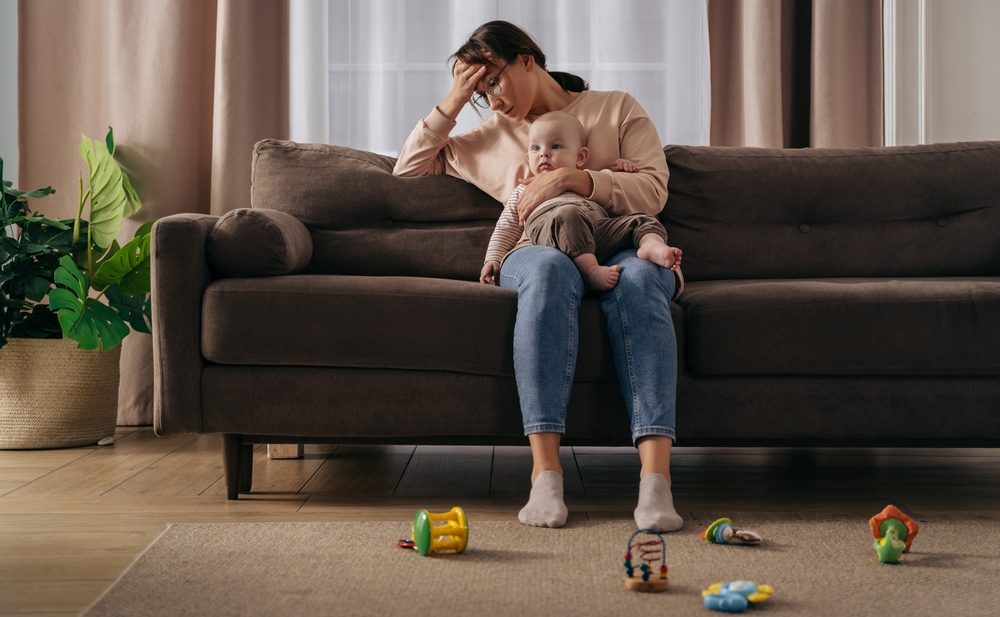- May 12, 2023
- by Shalini Murmu
- Psychotic Disorder
The birth of a child is often a cause of celebration and one of the most joyous and rewarding experiences a person can have running from ages. But as any parent will attest, the reality of parenthood can be far more challenging than we could ever have imagined. For women who have just given birth, the postpartum period can be especially taxing. Though rare, to some it can even lead to a condition known as postpartum psychosis – a serious and potentially life-threatening disorder that demands expert attention and compassion.
Understated Medical Emergency
At its core, postpartum psychosis is a psychiatric emergency that requires immediate diagnosis and treatment.
Postpartum psychosis is small scaled but poses a serious threat to mental health affecting nearly 1-2 per 1000 women after childbirth. The condition typically develops within the first two weeks after giving birth and can be identified by a range of symptoms, including confusion, delusions, hallucinations, and extreme mood swings. These symptoms can be incredibly distressing for women who are already struggling to cope with the physical and emotional demands of new motherhood and can have a significant impact on the entire family.
Despite the gravity of postpartum psychosis, many people are still unaware of its existence, or the risks associated with it. This is partly due to the fact that postpartum depression, which relatively affects a larger group of people about 10-15% of new mothers, often receive greater limelight in the media and medical community. But the two conditions are distinct, with postpartum psychosis being a much more severe and urgent situation.
Rapid Behavioral Changes
One of the most concerning aspects of postpartum psychosis is the speed with which it can escalate. Women with this condition can experience instant changes in their behavior and thought patterns, which can make it difficult for them to recognize that they need help. This can put one into dangerous situations for both the woman and her child, as well as for other family members. In some cases, women with postpartum psychosis may even try to harm themselves or their infants, making early diagnosis and treatment more crucial than ever.
Despite the severity of this condition, there is still a great deal of misunderstanding and stigma surrounding postpartum psychosis. Many people assume that the disorder is simply an extreme form of the “baby blues,” or that women who experience it are somehow weak or mentally unstable. In reality, postpartum psychosis is no joke. It is a medical condition that requires prompt and appropriate treatment.
Ignorance Is “Not” Bliss
If left untreated, postpartum psychosis can have long-lasting effects on a woman’s mental health and well-being. Women who experience this condition may be more susceptible to the risk of developing other mental health disorders, such as depression or anxiety, and may also be more likely to experience future episodes of psychosis. They may also struggle with feelings of guilt, shame, and isolation, which can make getting treatment even more difficult.
Given the seriousness of postpartum psychosis, it’s crucial that women and their families are aware of the condition and its potential risks. This includes recognizing the early symptoms, seeking immediate help, and receiving appropriate treatment and support.
Recovery Journey
Luckily, there are effective treatments that can help with psychotic symptoms after delivery. With the right care and intervention, women with the condition can make a full recovery and go on to lead healthy motherhood. Treatment may involve a combination of medications, therapy, and support from mental health professionals, as well as close monitoring and supervision to ensure the safety of both mother and the baby.
The road to recovery for people who have gone through postpartum psychosis may be difficult and drawn out. But with the right support and resources, it is possible to beat this devastating condition and move forward with hope and strength.
Postpartum psychosis can have life-altering consequences for women and their families, and it is essential that we raise awareness of the symptoms and risks associated with the condition.
If you are a mother and are experiencing any of the symptoms of psychosis, it is important to seek help immediately.
Prioritize Your Mental Health
It takes great strength to recognize that something is not in favor of your mental health and to seek help, and there is absolutely no shame in doing so. Postpartum psychosis is real and a serious condition, but it is also treatable. With the right support and treatment, you can overcome this challenge and regain your health and well-being.
Don’t wait for another moment to reach out for help – take that first step today and heal your inner self.
At NABHS, we understand the importance of quality care and resources in mental health recovery. That’s why we offer a range of services to help you access the best possible support and resources for your needs with trusted mental health facilities recommendations that can help you manage your symptoms and take control of your mental well-being.














